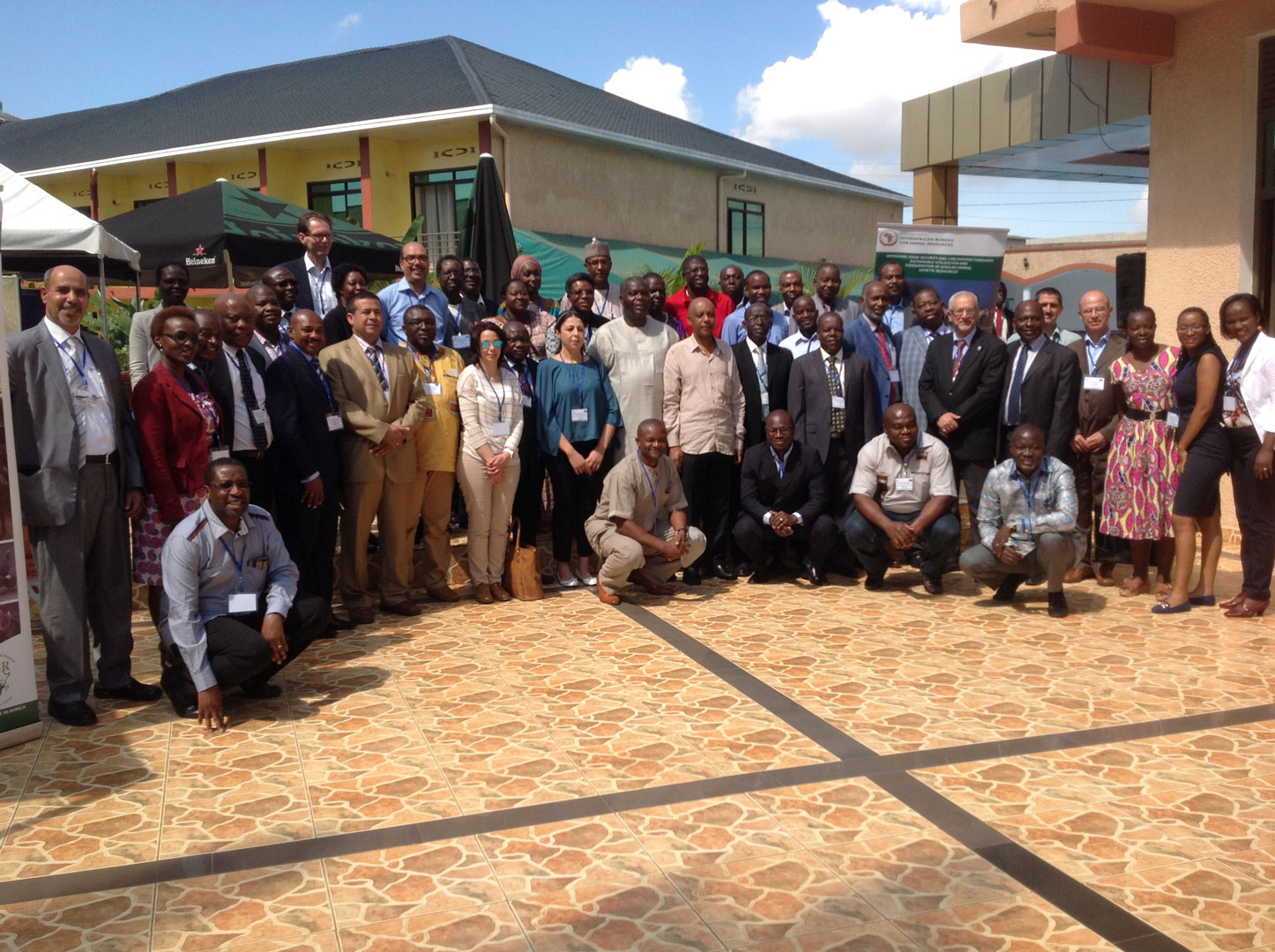Press Release - Expert Meeting on the development of Standard Operating Procedures for the management of Regional gene banks for Animal Genetic Resources

Africa is endowed with a rich diversity of animal genetic resources (AnGR) which play a very important role in the livelihoods of millions of Africans making invaluable contributions to food security and economic development. However, Africa has been losing some of its important AnGR due to various factors including indiscriminate crossbreeding, poor and uncoordinated breeding programmes and lack of supportive policies and legislation and deliberate conservation initiatives, among others. The African Union-Interafrican Bureau for Animal Resources (AU-IBAR) Genetics Project “Strengthening the Capacity of African Countries to Conservation and Sustainable Utilisation of African Animal Genetic Resources” is implementing an activity “Support for the establishment of regional/sub-regional facilities for ex situ conservation, in particular cryogenic storage and establish gene banks for AnGR” which seeks to support the conservation and sharing of animal genetic materials. Five gene banks have since been identified and endorsed by Member States (MS) and Regional Economic Communities (RECs) in the various regions to serve as regional gene banking facilities. This approach will promote regional cooperation and integration through sharing of available resources for the in situ and ex situ conservation of AnGR.
An Expert meeting was convened by AU-IBAR from the 21st to 23rd April 2016 in Kigali, Rwanda and was officially opened by Dr Theogene Rutagwenda, Director of Animal Resources Development representing the Minister of Agriculture and Animal Resources, Dr Agnes Matilda Kalibata. A total of fifty one (51) participants drawn from Algeria, Botswana, Burkina Faso, Cameroun, Ethiopia, Gabon, Ivory Coast, Kenya, Namibia, Niger, Nigeria, Rwanda, Swaziland, Senegal, Tanzania, Tunisia, Uganda, Zimbabwe and Netherlands were in attendance. Representatives from the following RECs: CENSAD, ECCAS, ECOWAS, IGAD, SADC and UMA and continental institutions: AU-PANVAC and African Regional Intellectual Property Rights Organization (ARIPO) also attended the meeting. Two experts from Senegal (Alain Kamga), Nigeria (Aludayo Amokaye) and representatives from AU-IBAR facilitated the meeting.
The main objective of the meeting was to draft Standard Operating Procedures (SOPs) which will harmonize processes and procedures involved in the collection, handling, storage, processing, transfer and movement of animal genetic materials between gene banks for the national and the proposed regional gene banks. Three main areas of the SOPs were considered in this meeting of experts (i) Technical procedures for the collection, handling, transport and storage of animal genetic materials (semen, embryos, oocytes ovaries, somatic cells, DNA and whole blood samples); (ii) Develop administrative and legal procedures for the access to and movement of animal genetic materials (in the context of the Nagoya Protocol for Access and Benefit Sharing, access rules, ownership and Material Transfer Agreements); and (iii) Design a framework for networking of national and regional gene banks (virtual gene bank) for information sharing and documentation. Over the 3 days, the experts working in groups developed detailed and extensive drafts of the Standard Operating Procedures on the 3 areas described above. These were presented in plenary and unanimously adopted by the participants. Suggestions were made to improve the documents and these were accepted and will be incorporated in the final drafts.
The meeting was highly successful as experts from all the regions of the continent collaboratively developed the Standard Operating Procedures for the management of gene banks in Africa and expectations are high that these will be adopted and endorsed by African governments and RECs.
